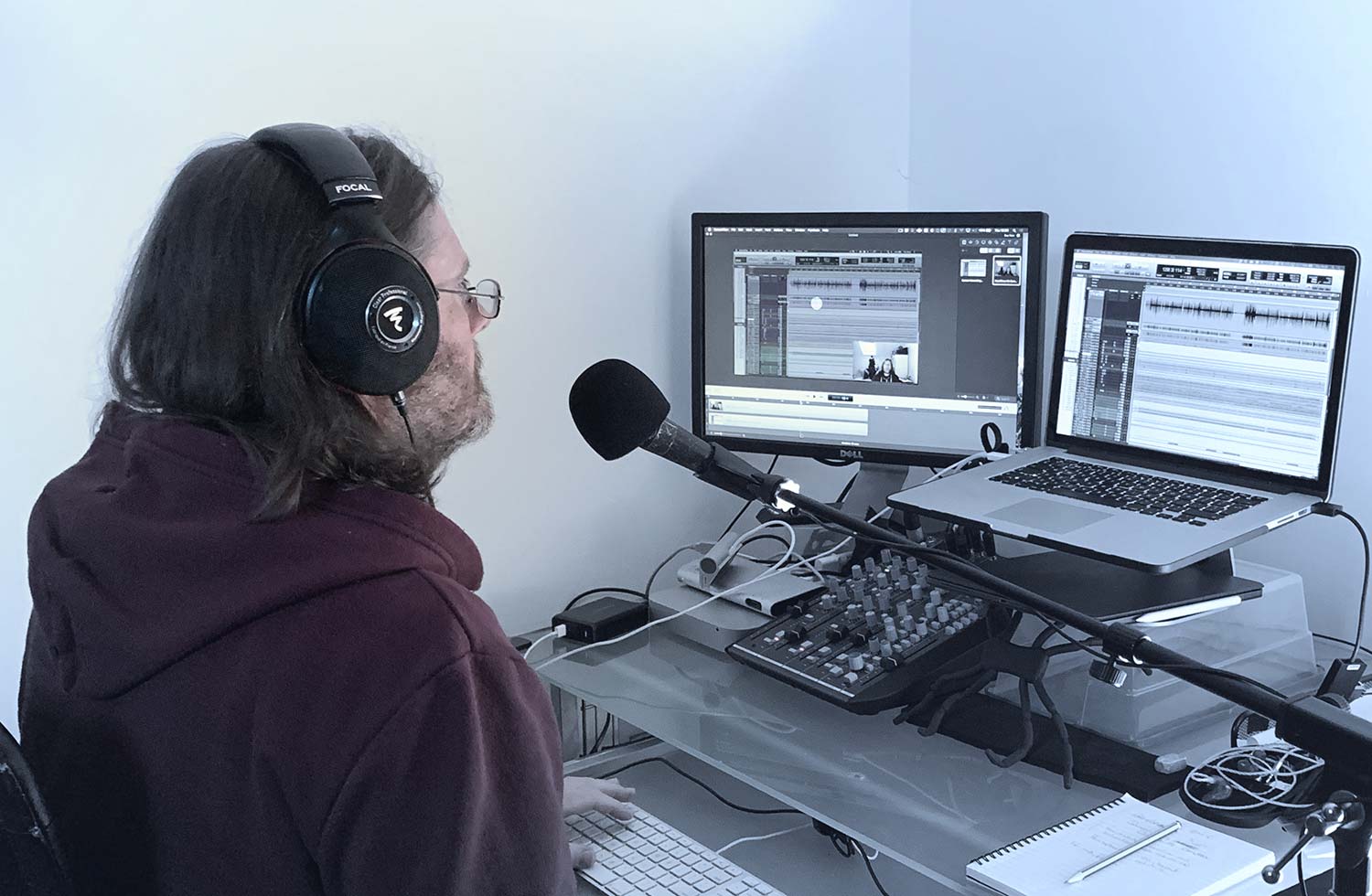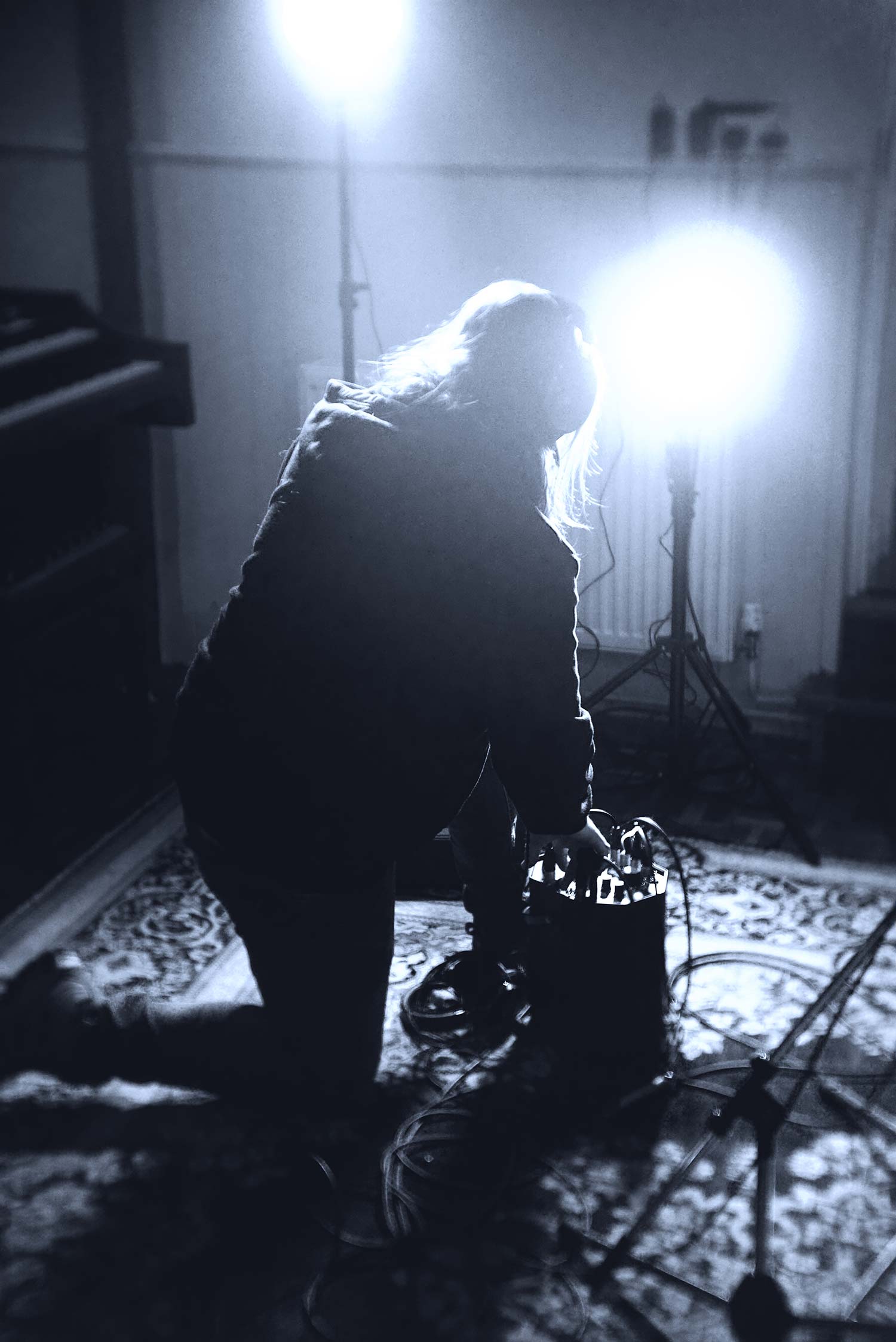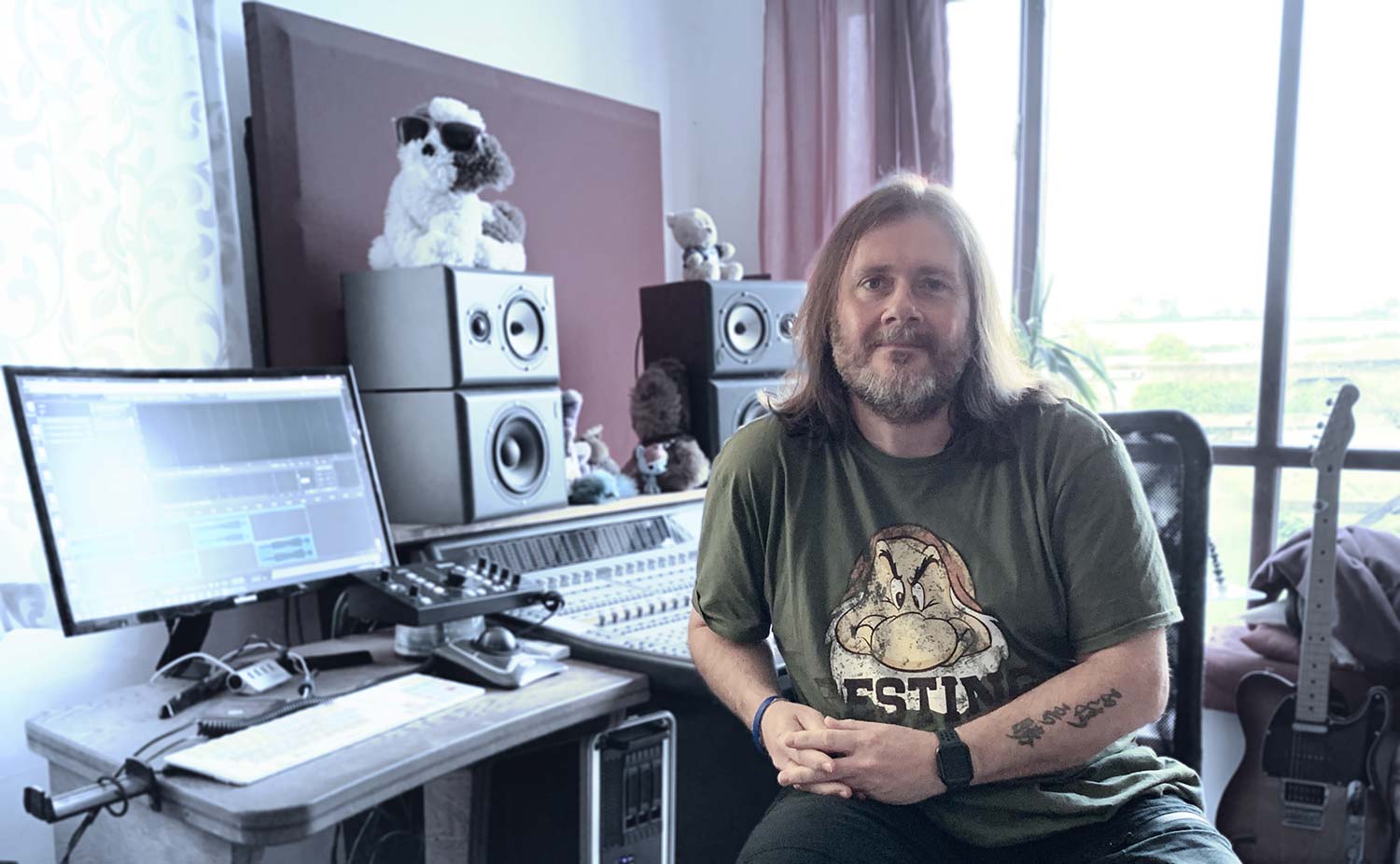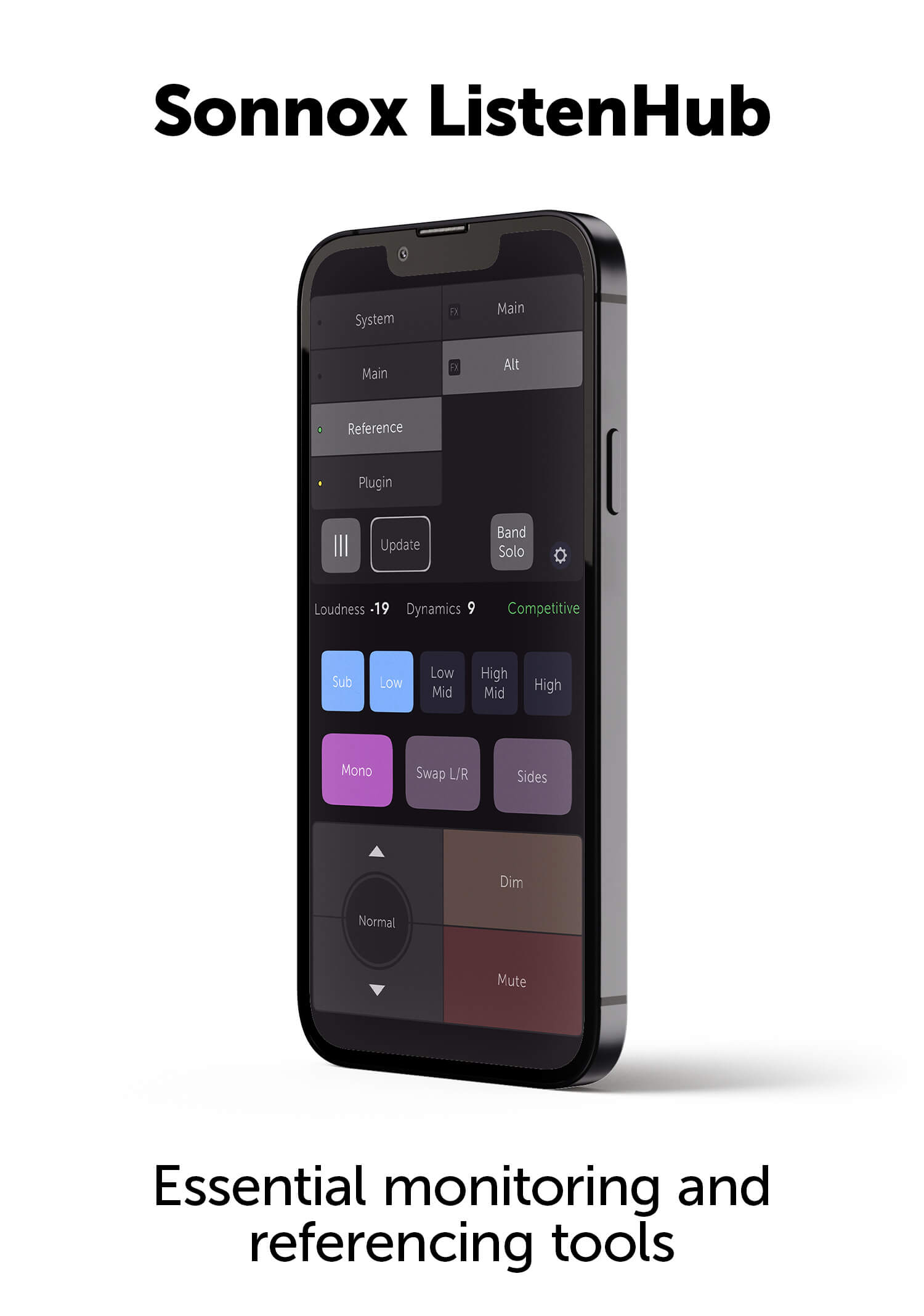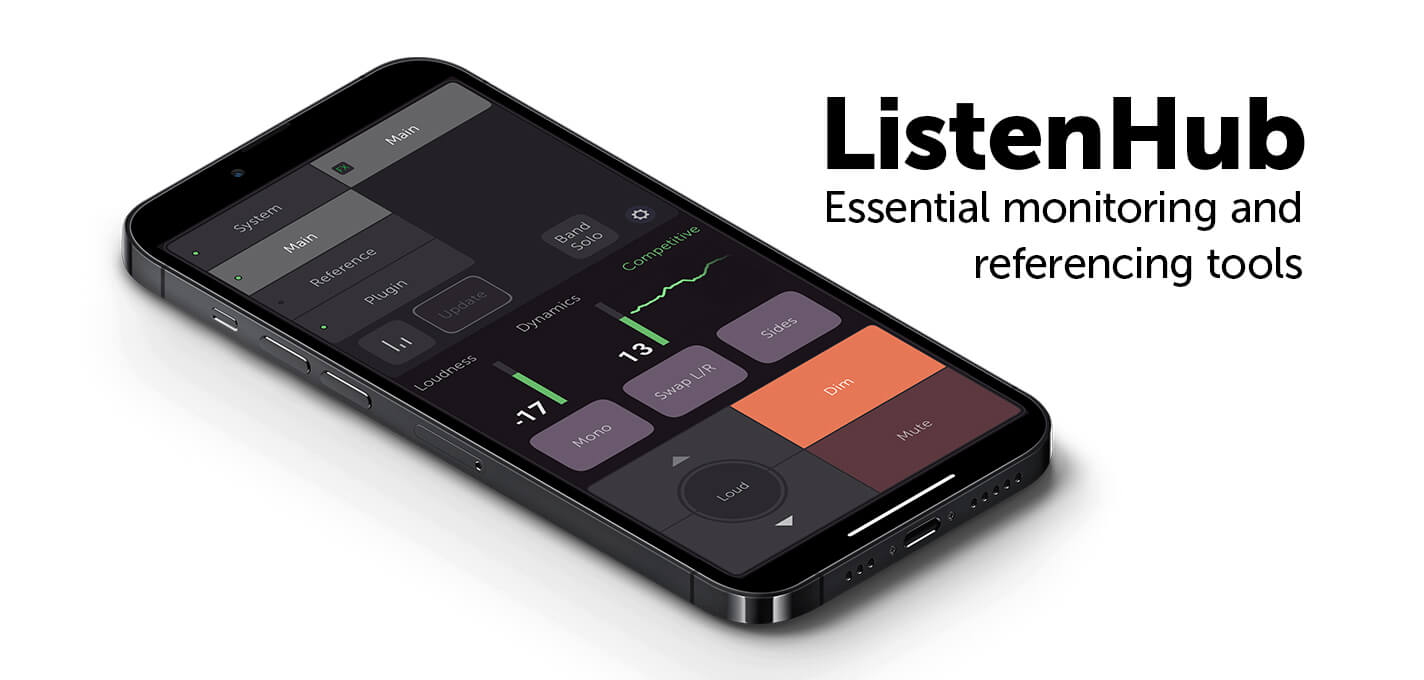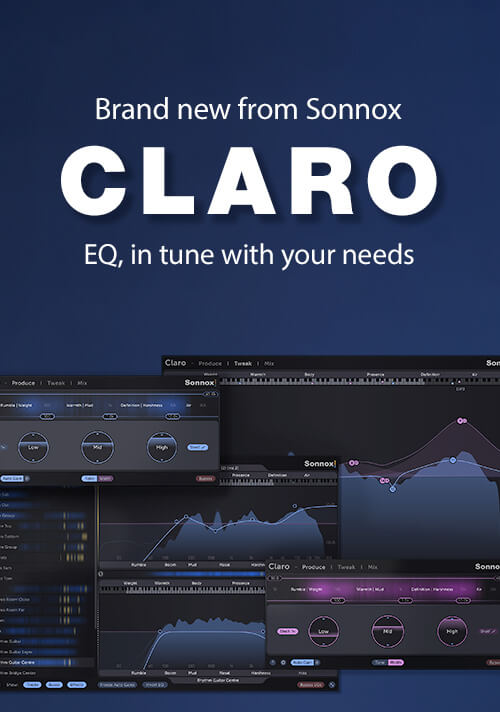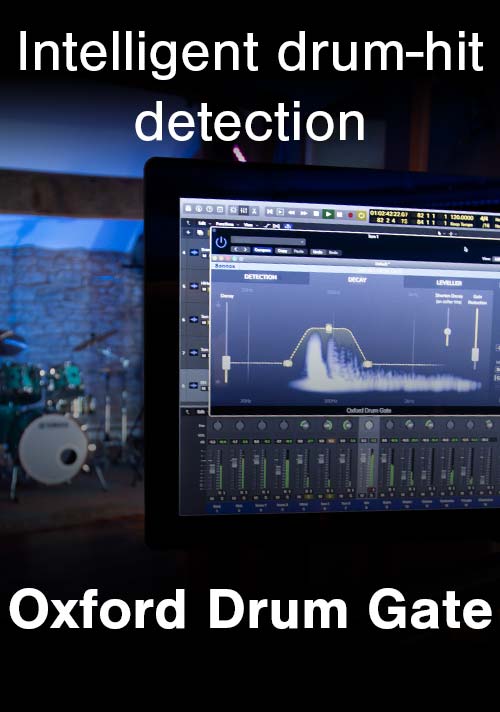Mike Exeter - The Strength of a Hobbit
Reading Time: 7 minutes.
A Journey through Panic to Resilience
As I finish another day comprising moments of accomplishment, indifference and panic underscored by the tune ‘Que Sera Sera’, the days of the week have little meaning apart from marking the passing of time on a calendar and reminding me of friend’s and family’s birthdays.
It’s now over a month since the world we knew suddenly and irrevocably changed, and I believe we are learning to change with it.
Interestingly though, for a lot of us freelance creatives, there has been less change in our actual working conditions. Shrinking budgets and advances in technology have been ‘encouraging’ many of us into creating home workspaces for many years. What many people are being forced into is something we have been actively embracing as a means of survival.
This has come with its own set of challenges such as dealing with neighbours and noise issues, acoustic treatment and, not least, isolation.
My own breakdown and descent into clinical depression, panic, anxiety and near-death a mere 6 years ago isn’t a secret. Still, the process of rebuilding and recovery has definitely equipped me with mechanisms that can help me right now.
Isolation is a massive factor in enabling depression to do it’s worst. It denies us the basic human need for contact with others. This, coupled with an increasing habit of remote, unattended mixing and mastering sessions has led to workflows where our only contact with other humans is a list of mix notes in disjointed and contradictory emails. This can breed conflict, feelings of inadequacy and paranoia, and imposter syndrome.
Conversely, when I am in a room listening together with the client, the conversation happens naturally. I get into my flow state, and the mix becomes a wonderful creative process. There are relatively few conflicts and misunderstandings because we can deal with every idea and its consequence as a team.
It’s recognising and reinforcing the importance of human interaction and visual communication that makes us better equipped to keep our creativity in that flow state. Embracing Video calling and audio streaming solutions is one way we can bring the interaction back to a semi-normal state.
I always say that I love people but on my terms. That is an important thing for me because you need space and solitude as well as human contact and interaction, but you must find a balance that works for you.
Since coming back from the most painful and devastating time in my life, I have focused on amazing music projects in my day job, but I’ve also committed as much time as possible to help people, sharing what I’ve learned, and paying it forward at every opportunity.
However, in doing this, along with ‘doing the day job’ the need to share myself has completely filled my life. It has stretched my resources, my monthly car journeys have been over 2000 miles, and it’s given me little time for rest and looking after myself properly.
The Pandemic has forced me into not taking my recovery for granted, and led us into a new way of existing. It has exposed huge parallels in what I went through mentally and physically to get to the bottom of the abyss, but also reminded me of the amazing, but also, simple things that brought me climbing back out to a somewhat normal and, in many ways, better life.
In the last 5 weeks, I’ve spoken with many people, sharing experiences and feelings, and helping to make sense of what can only be described as a shared, global panic attack. In most people, the panic has manifested itself in feelings of despair and emptiness, along with experiences of helplessness.
None of this is surprising given that we are a species reliant on certainty and comfort. But what we have been forced to accept as real, in an incredibly short time, is a previously unimaginable situation on a global scale that is totally out of our control.
For me, the most heartbreaking thing was seeing a lovely lady the same age as my parents at the supermarket looking forlornly at empty shelves. This was not a picture in the press, this was right in front of me at my local supermarket. I cried like I hadn’t cried since my breakdown.
That release of emotion was necessary, and I was able to calm myself and realise I could only control what was in my power. I couldn’t do anything about hoarders and selfish acts, but I could stop reacting to them or letting them affect me, and more importantly, I could do everything to not negatively impact others with my own actions.
In mental health circles, we are taught to develop resilience and coping mechanisms to keep us from descending into the darkness, and this is something that takes time and lots of support. We have to look at the broader picture. By only focusing on death and bad news, we expose ourselves to triggers.
When the World Trade Centre was hit, there was a similar feeling of loss of control, fear and panic. Days (and weeks) were spent waiting for the next terrible thing to happen. Life didn’t go on for what seemed an eternity. This is what we need to avoid.
Everyone has good and bad days, but these current times will amplify every emotion we possess as we navigate this paradigm shift in our existence.
If we can step back, breathe, and take a look at some positives we’ve seen during this nightmare, it’s possible to slowly build the resilience we need. We can start thinking about how life could be infinitely better for everyone once the ominous threat of the virus is no longer consuming thought we have; an exercise in resilience and distraction in itself).
This is not always easy for everyone, but that’s ok. Nobody should be critical of themselves or others for not feeling like doing anything. This is not normal for us - it is scary, and it is out of our control.
But what can we control?
We can decide what we read and watch, what (and who) we choose to believe, and whether we engage in harmful, uninformed arguments about things outside our immediate situation.
We can also choose to engage with people who make us laugh and support us, we can watch funny videos and listen to music that makes us laugh and cry. We also shouldn’t feel guilty about what is happening to others or worry about laughing and having fun. The phrases you’ll hear at most funerals are “they would have loved today, seeing everyone laughing and being together” and “they would want you to carry on living your life.”
When I was on anti-depressants, I was a walking zombie, I had zero emotion. I couldn’t function, and I wasn’t even close to being myself. I know now that the Yin and Yang of emotion require us to feel the lows to be able to appreciate the highs. It’s about controlling the swing between the two.
We have to stop thinking in absolutes too. Stepping back and observing trends and probabilities show a much less catastrophic vision than the binary outcome of life or death. The media make a living out of exaggerating bad news, so we must stop ‘researching’ ourselves into the downward spiral of worst-case scenarios.
A significant by-product of the Pandemic has been a sense of growing community and humanity (albeit interspersed with small factions of anger, blame and parasitic selfishness) which has propagated throughout the world. We are questioning where we had come to as a species and wondering whether this may be the wake-up call we needed - it is a sobering thought that the memes showing how the world would cope if the human race was gone have become a stark reality.
Not spending so much time travelling has had profoundly positive effects on my health and headspace. I’ve found I’m listening to way more music than I have wanted to in years. I’m listening to Audiobooks and catching up on learning new skills. I am connecting with people over video calls that would never have happened in the past as everyone was too busy, or embarrassed about their living rooms, wallpaper or hairstyle!
This begs the question - Will we come to ask why so much energy is spent commuting when it has been proven to us that an inordinate amount of communication can be done using the technology we all have? Maybe...
Let’s embrace these (not so) new methods of working and actively encourage clients to ‘virtually’ attend mix and mastering sessions. Let’s promote conversation instead of contradicting bullet points in detached Mix Revision Emails. Hopefully, we’ll think more about the reason for travelling to meetings, make time for what we are rediscovering as necessary, and reserve travelling for more pleasurable past-times.
We’ll certainly be suspicious of snake oil salesmen, and tyrannical bosses insisting on work taking priority over everything else.
My days are still incredibly emotionally fragmented, but it only takes seeing familiar faces and sharing laughs to realise that the human spirit is a powerful contagion, itself able to change our perspective in beautiful ways and see us through these strange times.
I never want to feel that desperation and self-imposed isolation from humanity again, which is why I felt compelled to share these thoughts. The difference this time is that I see everyone around me as a friend and ally in the fight against the outside force threatening to tear us apart, and if I feel that way then hopefully you too can feel that you are not alone in this.
I have no magic pill that will change what is happening around us, but I can change my perception of what is important and encourage you to start to do the same. The mind can take us to the bottom of the river bed, but equally, it can take us to the top of a mountain, creating incredible beauty and positivity, and with support and empathy it is not such a horrendous journey.
Why “The Strength a Hobbit”?
My son calls me Frodo; a little guy who, with a lot of help, dared to let go of the things he couldn’t change and conquer unimaginable demons.
“I wish the ring had never come to me... I wish none of this had happened.” said Frodo.
“So do I,” said Gandalf, “and do all who live to see such times. But that is not for them to decide. All we have to decide is what to do with the time that is given to us.”
He may have been a figment of Tolkien’s imagination, but that in itself says something about what can be achieved when we put our mind to it. Stay safe, help and be helped, and continue to be amazing.
Watch the live stream:
Important Links:
There are many excellent organisations around the world, providing support for those struggling with mental health. Here's a handful of resources that were discussed in the Q&A:
Music Industry Therapist Collective and their fantastic Guide to Anxiety Relief & Self Isolation
Find a suicide prevention hotline
Music Minds Matter by Help Musicians.
About Mike:
Mike Exeter is a Grammy-winning producer and engineer, who came to prominence via his work with British rock bands Cradle of Filth, Judas Priest Black Sabbath and more.
https://www.namm.org/video/nammu/maintaining-mental-health-music-industry-mike
